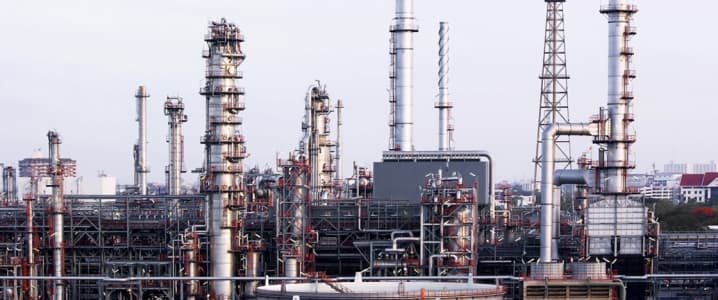Libya has been teetering on the edge of economic collapse for a couple of years now, and may have just made a narrow escape, right when the World Bank issued a dire warning about its future fortunes. The danger is not over yet, however, as so much depends on the continued political stability of the North African country.
Two years ago, civil war-torn Libya suffered a blow when the Petroleum Facilities Guard, a local militia, took control over its four export terminals in the so-called Oil Crescent. From that moment up until this September, Ras Lanuf, El Sider, Zueitina, and Brega were under the control of the militia, which used them as a means of extorting money from the available authorities, effectively suspending oil exports from the country.
Things changed this September, when the Libyan National Army took over the four ports and handed control over to the National Oil Company. Operations at some fields that were previously shut down by the PFG also restarted and, as of this week, Libya boasts daily production of 580,000 barrels.
That figure is almost equal to the World Bank’s 600,000-bpd forecast for Libya’s oil output at end-2017, under a scenario where the Government of National Accord wins the trust of the House of Representatives – the alternative authority based in Tobruk, in eastern Libya. What the World Bank did not factor in, apparently, was the possibility that NOC, the GNA, and the Tobruk-loyal LNA under General Khalifa Haftar would join forces to restore the country’s oil industry. Related: Oil Prices Close To One Year Highs On Bullish Inventory Report
Some Libya analysts see Haftar as a key figure in the process of unification. The general has had a long and colorful career in politics, from a Gaddafi loyalist to one of the frontmen of the 2011 uprising. He has won the appreciation of Libyans by stifling the threat posed by the Islamic State. And, according to both experts and Libyan citizens, his ultimate goal is to take control of the country.
It is with this goal in mind, according to Libya expert Jason Pack, that Haftar handed over control of the oil terminals to NOC and channeled the money to the central bank in Tripoli, the HQ of the GNA. As a result, GNA Prime Minister Fayez al-Sarraj pledged, in late September, to grant Haftar representation in the new ministerial lineup that will follow a vote of no confidence from the House of Representatives.
“We have no other choice but dialogue and reconciliation,” Al-Sarraj was quoted as saying in an interview for AFP. Indeed, dialogue is the only way for the rival forces in Libyan politics to get the country back on its feet, and this seems to have taken priority over their fight for control, at least temporarily. How long this priority lineup will survive is an open question. Related: Why Permian Prices Will Keep Breaking Records
Already there is reason for increased tensions between Haftar and the GNA, after Al-Sarraj decided to give the defense ministry to another military man, Ibrahim al-Barghathi. The significance of this move becomes clearer in light of earlier reports that Haftar was the person who made sure that the House of Representatives voted down Al-Sarraj’s initial ministerial lineup.
It seems that the UN-backed Government of National Accord may need to make more concessions to the LNA and the House of Representatives if it is to get their support, and General Haftar’s. This support, as the World Bank’s report suggests, is urgently needed as Libya’s economy is a shambles, desperate for oil cash, as Libya has virtually no other source of income besides its crude oil reserves.
The problem with oil cash is that it’s a double-edged sword. The moment it starts flowing, political tensions are likely to heighten, as rival factions seek greater access to the public coffers. The likelihood of this happening will be much lower if the GNA and HoR manage to forge a solid mutually beneficial agreement, ensuring that all the major stakeholders are happier with it than any alternative. How achievable this is, however, remains uncertain.
ADVERTISEMENT
By Irina Slav for Oilprice.com
More Top Reads From Oilprice.com:
- A Glimpse Into Saudi Arabia’s Secret Oil Strategy
- Saudi Oil Minister: Non-OPEC Producers Are Ready To Join Output Cut
- Exxon CEO Contradicts Other Oil Executives: Doesn’t Expect Supply Crunch



















Gaddhafi was too independent for the USA& its NATO running dogs. He is being replaced by Haftar now.
It won't bring stability to Libya.